Top Nutritional Tips for German Shepherd Food: Keeping Your Dog Healthy

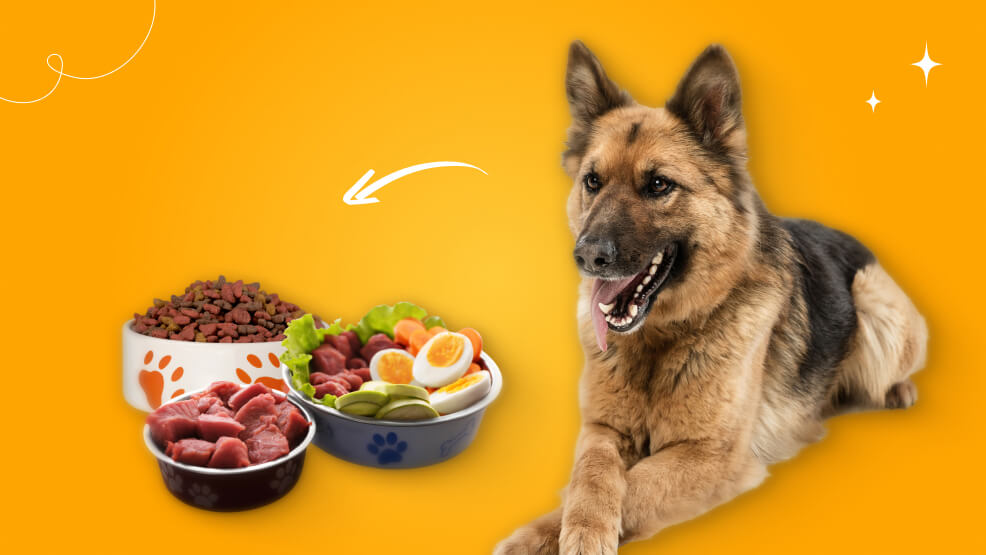
German Shepherds are one of the most widely spread breeds worldwide, known for their intelligence, loyalty, and adaptability. But it is only due to the right nutrition that your German Shepherd will live a healthy life.
That’s why we have prepared the best nutritional tips regarding German Shepherd food with the help of which you can keep your furry friend healthy and happy.
Nutritional Needs for German Shepherds
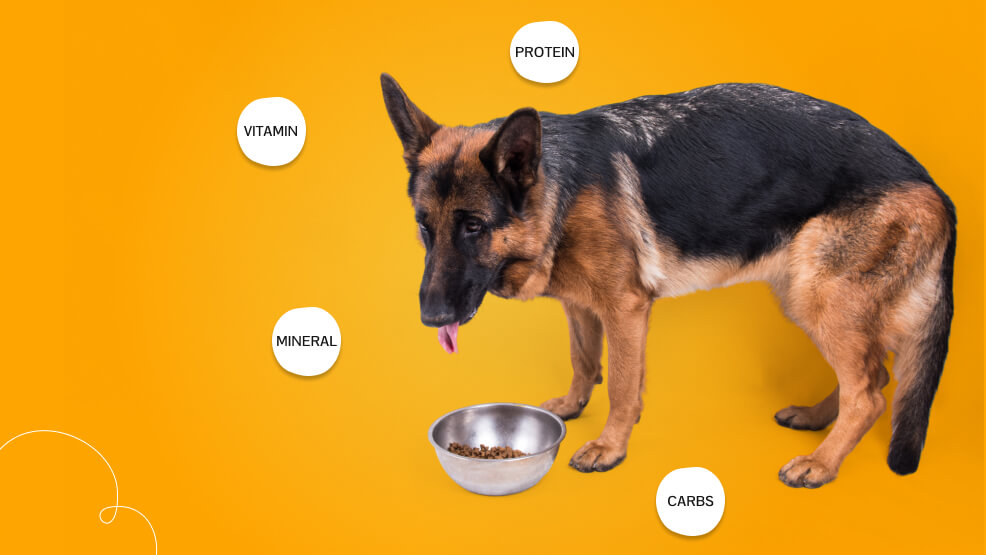
German Shepherds are medium to large-sized breeds. They require a very balanced diet to maintain themselves.
The nutritional needs of German Shepherds would not be the same for other smaller breeds. There are several important aspects in the diet of your German Shepherd to keep it fit.
1. Protein
German Shepherds are energetic dogs. Therefore, they should be fed foods with higher levels of protein because that will develop their muscles into the proper form of growth.
Buy your German Shepherd food products first containing the best forms of protein, like chicken, beef, or fish.
2. Fats
Fats are energy sources for the dog and give a shiny coat. Some healthy fatty acids include Omega-3 and Omega-6 fatty acids.
These can be obtained from fish oil or flaxseed oil. These oils must be included in the food of the German Shepherd.
3. Carbohydrates
The dog is a meat-eater but also intake carbohydrates. These provide the dog with energy and facilitate their digestive system. In the case of the German Shepherd, whole grains must be in brown rice, oats, and sweet potatoes.
4. Vitamins and Minerals
These nutrients will make a German Shepherd healthy and thriving. A German Shepherd food must have the right amounts of vitamins and minerals: calcium to make bones strong, and vitamins A, C, and E to make the immune system healthy.
What Makes the Right German Shepherd Food?
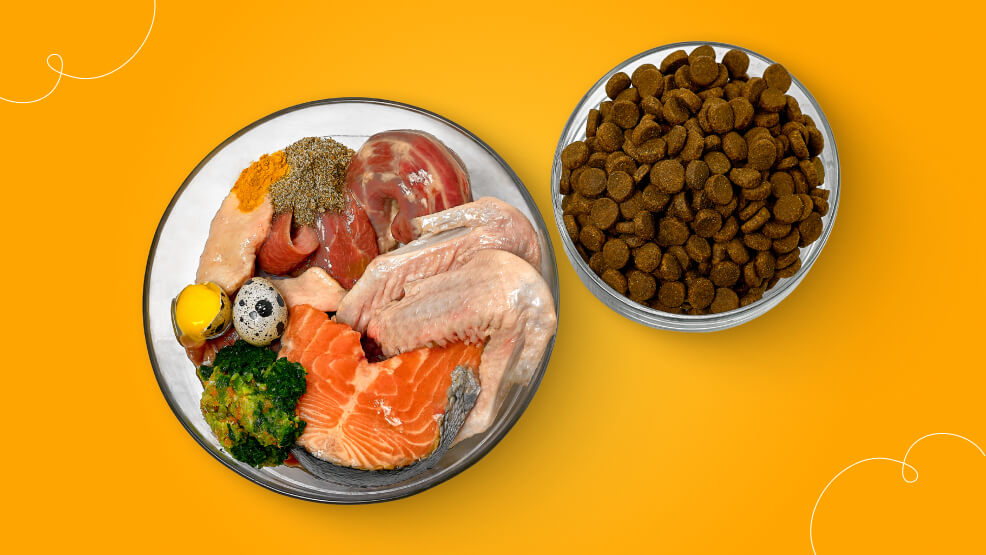
Best German Shepherd food choice you can choose any of the following:
1. Commercial Dog Food
Commercial dog food might be one of the easiest decisions you can make. Here are some things to consider:
Dry Kibble: This is probably the most popular dog food available today. Mostly, it’s cheaper compared to the rest. Therefore, consider top-grade German Shepherd food to suit the needs of your breed.
Wet Food: it’s canned food, so it’s always wet with high water content. The pros to this type of food would be hydrating for a dog, but will end being pricey compared to kibble
Grain-free: German Shepherds happen to fall victim to grain intolerance. Some Germans will manifest symptoms to possible allergies or reveal the fact that they have developed further gastrointestinal issues, a diet without grains is right.
2. Homemade Dog Food
Preparing your home German Shepherd food proves to be a great way of keeping your dog well, provided with fresh quality inputs.
However, this approach must first be consulted with a veterinarian or pet nutritionist wherein the recipes being used may be balanced and suitable according to the dog’s requirement.
3. Raw Diet
A BARF, which is otherwise called a “Biologically Appropriate Raw Food,” diet should include the raw meat, bones, fruits, and vegetables that will be needed to feed them properly.
They claim this is a more natural diet for their dogs, but it has to be done to get it all safely exposed to the dogs.
Portion Control and Feeding Instructions
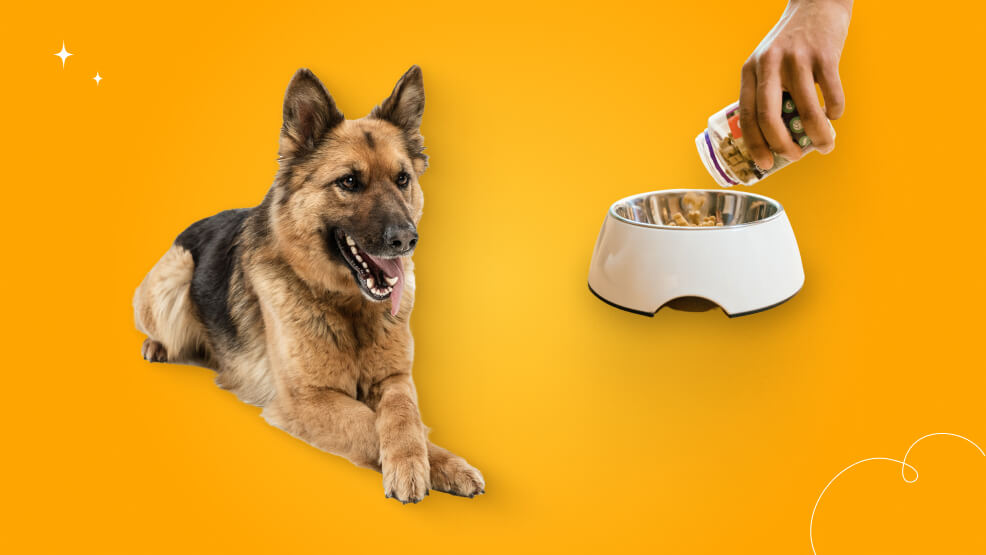
You would feed the right amount as much as getting the right ingredients for his German Shepherd. Here is how you can do that:
- Follow package guidelines: Most commercial German Shepherd food brands provide feeding guidelines based on your dog’s weight and age.
- Allow for Activity: If the German Shepherd is highly active, they should eat more than the relatively less active dog. Monitor their weight and serving.
- Overfeeding Prevention: Overfeeding is risky health-wise if your German Shepherds become obese. The quantity of food shall depend on their weight and body condition.
German Shepherds are well-known to be prone to certain medical issues. You could change their diet on the following bases accordingly:
1. Hip and Elbow Dysplasia
This breed is highly susceptible to hip and elbow dysplasia, which leads to arthritis and immobility. If you wish your German Shepherd to be fit with healthy joints, seek dog food that has glucosamine and chondroitin. The supplements make sure the healthy joints reduce inflammation.
2. Bloat
In medical terms, Bloating, otherwise known as gastric torsion, is fatal in German Shepherds. Feeding the dog more frequently and in smaller portions instead of one big meal in a day and not engaging it in strenuous activities right after feeding prevents the onset of bloat.
3. Allergies
German Shepherds become food allergic at times. Among the most common ones, there are beef, chicken, and grains. Upon suspecting that your German Shepherd is suffering from a food allergy, you must rush to the vet and get an elimination diet.
Homemade Treats for Your German Shepherd
Homemade treats supplement a regimen of German Shepherd Dog Food. And here are effortless recipes:
1. Peanut Butter Biscuits for Dogs
Ingredients:
- 2 cups whole wheat flour
- 1/2 cup peanut butter, xylitol-free
- 1/2 cup water
- 1 egg
Instructions:
1. Preheat oven to 350°F (175°C).
2. Mix all together in a bowl until well combined.
3. Roll out dough and cut into shapes.
4. Place on baking sheet and bake for 15-20 minutes.
2.Sweet Potato Chews
Ingredients:
- 1 large, sweet potato
Instructions:
1. Preheat oven to 250°F (120°C).
2. Slice the sweet potato into thin strips.
3. Line a baking sheet and bake at 200°F for 2-3 hours, turning halfway through. You want them to be very dry.
Monitoring Your German Shephard’s Health

After ensuring you have a proper feeding schedule, monitor your German Shepherd’ health. These are some guidelines that will be important for your dog’s health:
- Weight: Follow up on how heavy or light your dog becomes about its weight. If huge, see your vet immediately.
- Coat Condition: A healthy coat shines with hair. In case it becomes dull, flaky, or matted, it will tell that the diet may need to be proper.
- Energy Levels: Your German Shepherd should show a lot of energy, and laziness on one’s part may even need inspection on a diet or a vet.
- Digestive Health: A healthy stool means your dog is properly breaking down his or her food. When there is something abnormal like diarrhea or constipation with your dog, then probably the dog’s diet needs some revision as well.
Wrapping Up!
Feed a German Shepherd right, perhaps that is one of the simplest responsibilities of owning one. Familiarize yourself with the nutritional requirements you will provide for your pet.
You can give them a quality German Shepherd food, ensuring that this time going forward they will live healthier, happier lives.
Choose depending on recommendations from your vet and suitable individual modifications that work for your dog. Proper nutrition brings you years of joyful association with your German Shepherd as he flourishes under good nourishment.






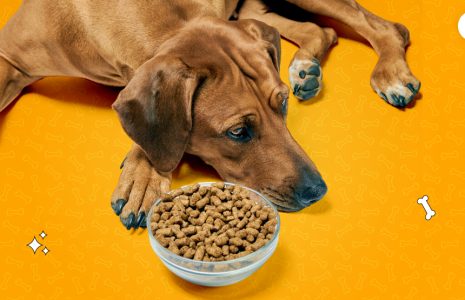
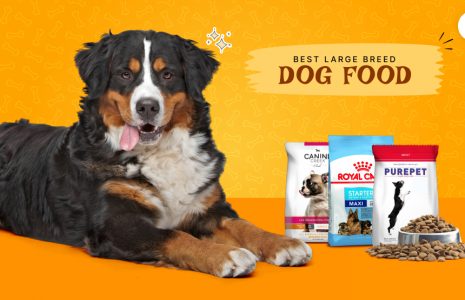

Leave A Comment